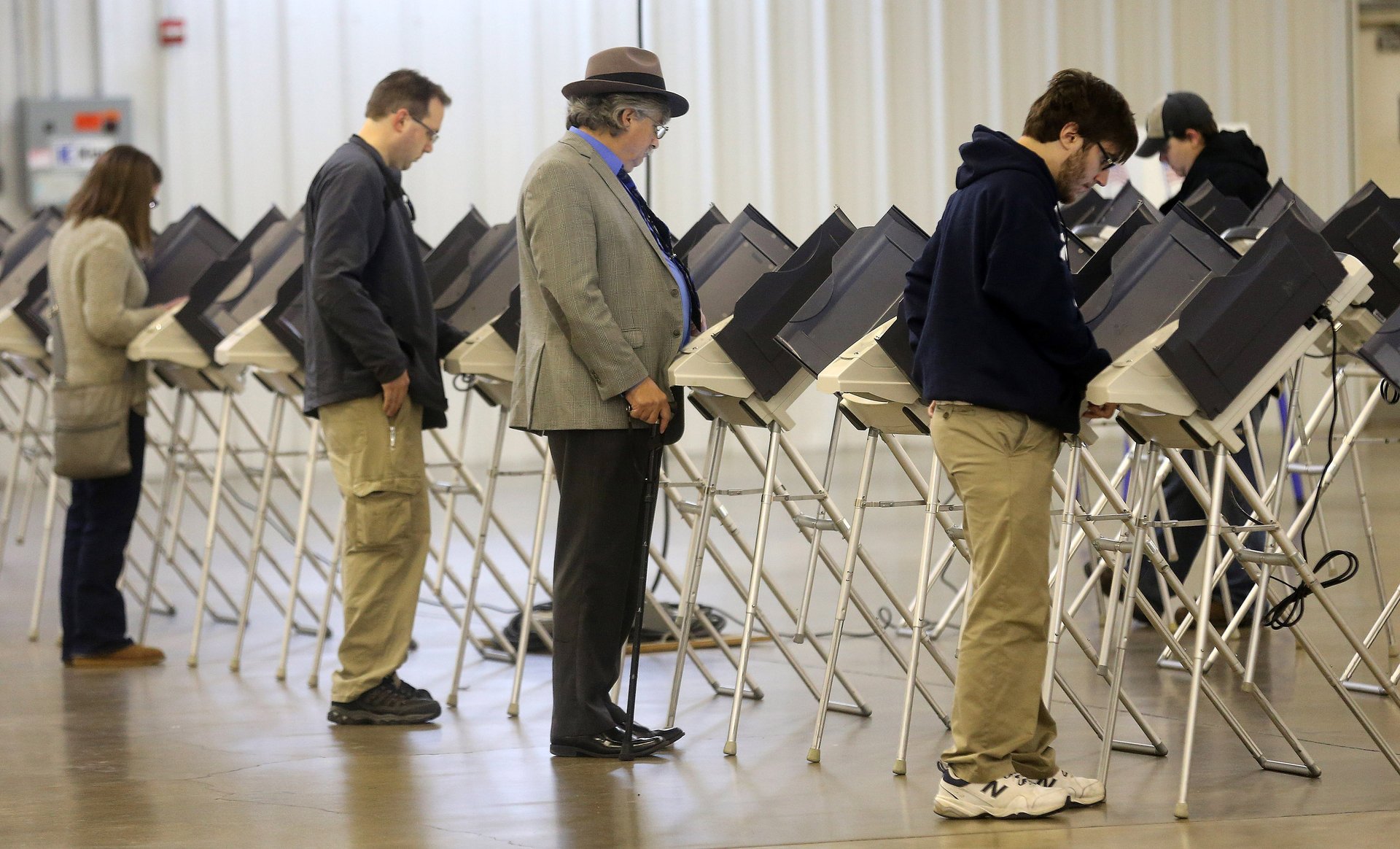The US Supreme Court just made it easier for states to prevent citizens from voting
The US Supreme Court sided with the Ohio in a case over whether or not the state has the right to cull voters from registers if they go too long without casting a ballot. The court’s narrow ruling is likely to have dramatic knock-on affects across the country. At least twelve other conservative states said they would follow Ohio’s lead if it prevailed, NBC reports.


The US Supreme Court sided with the Ohio in a case over whether or not the state has the right to cull voters from registers if they go too long without casting a ballot. The court’s narrow ruling is likely to have dramatic knock-on affects across the country. At least twelve other conservative states said they would follow Ohio’s lead if it prevailed, NBC reports.
Ohio aggressively trims its voter rolls by sending notices to people who have not voted in two years. Anyone who doesn’t respond or vote within the next four years is deregistered. All states update their registers by cutting people who have moved or died, but this case centered on whether missing a few votes was sufficient grounds to drop someone.
The case was brought by Larry Harmon, an Ohio software engineer, who showed up to vote and found his name wasn’t on the register. He said he never received a warning letter. His case was backed by 12 generally Democratic-leaning states (pdf, p.33-35), and was opposed by the Trump administration and 17 typically Republican states (pdf, p.21-22).
Civil-rights groups say the case is a landmark in the larger attempt by conservative states to marginalize ethnic minorities, who tend to have fewer people registered to vote already. For these minority groups, voter registration has been a central issue since the 1960s.
Harmon lost by five votes to four on the nine-person panel. Judge Samuel Alito, who wrote the majority opinion, said those backing Harmon were doing so based on policy preferences, not the law. “We have no authority to second-guess Congress or to decide whether Ohio’s supplemental process is the ideal method for keeping its voting rolls up to date,” he wrote (pdf, p.21). “The only question before us is whether it violates federal law. It does not.”